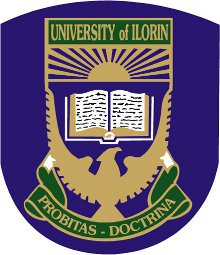UNILORIN develops device to check electricity theft
Date: 2017-06-06

The Department of Electrical and Electronics Engineering, University of Ilorin, has developed a prototype anti-theft device that can remotely monitor and detect customers stealing electricity.
According to the acting head of the department, M. Akorede, the device, which can also cut the main supply to the location of such illegal act, will simultaneously send a message to the utility control room to alert the system operator with the customers' details displayed on the control panel.
Mr. Akorede disclosed that the Unilorin Laboratory to Product Centre (LABTOP) has started the processes for patenting the invention.
He said that the invention was put together by him and some students of the department.
The students, who are currently on National Youth Service, are T. Olalekan, R. Adepoju, D. Itodo and M. Dickson.
"I gave the project to my undergraduate students; they carried out the project to a level and I took it over and brought it to a level that was up to a standard that we presented it at the NURESDEF, Abuja, a couple of months ago," he said.
He noted that the invention is now up to the standard that it can be patented.
"I have brought this to the attention of the Ibadan Electricity Distribution Company (IBEDC) although not officially… if adopted, the device would enable distribution companies to cut their commercial losses substantially."
Commenting further, he said, "People like to use electricity without paying for it. A lot of people that have been able to get the prepaid meter even though they can afford to pay their bills still want to bypass this thing to steal electricity and this is not helping the companies; it is not helping all of us as a whole. If the industry should collapse, everybody would bear the brunt of that problem and that is why the consumers too have to share out of the problem."
While noting that distribution companies (DISCOs) also have their share of the blame by not wanting to take on responsibilities such as faulty transformers, Mr. Akored bemoaned the lack of political will, inadequate funding as well as obsolete infrastructure in the industry for the current problem associated with power failures in the country.
He However, pointed out that the tripartite arms of generation, transmission and distribution lack adequate funding in the sense that some of their equipment are over-aged and need to be replaced.
"They need funding to expand their facilities such that a transformer, for example, will not be overloaded, because if power is supplied to an overloaded transformer, it means the customers will not enjoy good quality electricity supply," he said.
The head of department also noted that the current clamour for generation companies to sell power directly to consumers may not make much difference in boosting power supply to Nigerians.
"Technically, I don't think it would work out fine; I don't think there is going to be much difference as such... that is likely to add to the problem in the energy industry because we already have people managing distribution while another is managing transmission from generation companies to make it available to distribution companies.
"Each of these stakeholders is looking at the specific roles given to them. So, if it is now muddled up again, I think there will be problem in the society," he submitted.
Source



